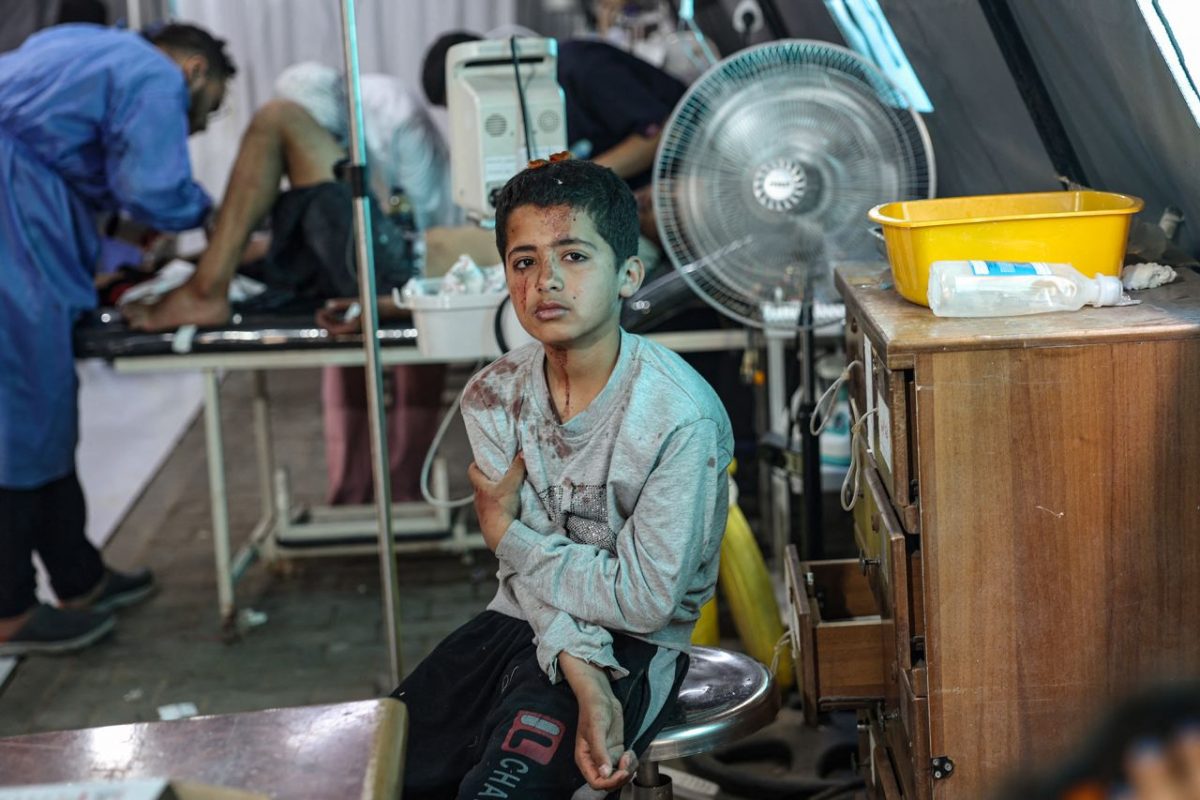Dr. Tedros Adhanom Ghebreyesus, the WHO director-general, stressed the severe impact these orders are having on the already limited medical services in the region.
“There’s really no safe corner in Gaza,” said Ghebreyesus in a statement.
“The latest reports on evacuation orders in Gaza City will further impede delivery of very limited life-saving care.”
The WHO has reported that key hospitals such as Al-Ahli and Patient Friendly hospitals are out of service.
Patients from these hospitals have been forced to either self-evacuate, were given early discharges, or referred to other hospitals.
Kamal Adwan and Indonesian hospitals, which are now responsible for these patients, are grappling with severe shortages of fuel, beds, and trauma medical supplies.
The Indonesian Hospital is currently operating at triple its capacity, struggling to cope with the influx of patients.
Al-Helou Hospital, located within the blocks affected by the evacuation order, continues to operate but only partially.
Meanwhile, As-Sahaba and Al-Shifa hospitals, which are near the evacuation zones, remain functional for now, though their status is precarious given the proximity to conflict areas.
Additionally, six medical points and two primary healthcare centers fall within the evacuation zones, further straining the healthcare infrastructure.
Ghebreyesus warned that these critical medical facilities could quickly become non-functional due to hostilities in their vicinity or obstructions to access.
The WHO has called for a cease-fire to ensure that medical aid can reach those in dire need and that the wounded can receive proper care.
WHO spokesperson Tarik Jasarevic told a UN press briefing in Geneva that of 36 hospitals in Gaza, only 13 are partially functioning.
Jasarevic stressed that patients and medical staff evacuated three hospitals in one week in southern Gaza in fear of intensified military activities that could render the health facilities non-functional or inaccessible.
While the cumulative bed capacity at the six partially functional hospitals in southern Gaza, including three in Deir al Balah and three in Khan Younis, now stands at 1,334 beds, he said that there are a total of 11 field hospitals in the strip — three had to temporarily shut down, and four are partially functioning, due to the Rafah hostilities and reduced access.
Most of the field hospitals in Rafah are relocating to the central area, he added.
The spokesperson, citing the Palestinian Health Ministry, underlined that 34 people have died of malnutrition and dehydration.
In Kamal Adwan Hospital alone, Jasarevic said, 60 severe acute malnutrition cases were detected last week, and two patients were admitted to the stabilization center.
Since mid-October, 865,000 cases of upper respiratory infections, 485,000 cases of diarrhea, 96,417 cases of lice and scabies, 60,130 cases of skin rashes, 10,038 impetigo cases, and 9,274 cases of chickenpox have been reported in displaced people shelters, according to the spokesperson.
“No WHO trucks have passed last week into Gaza since Karem Shalom remains closed,” he added.
